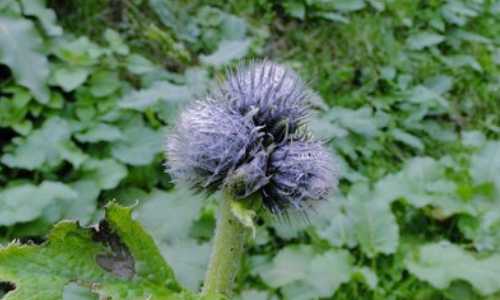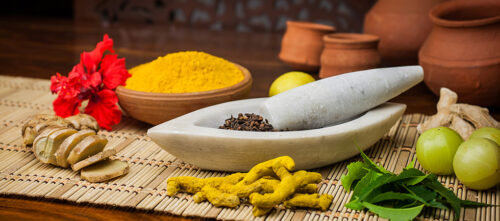In a world full of trendy diets, gut-reset teas, and skin-brightening serums, we forget the most fundamental truth of healing: everything begins in the gut. Ayurveda has repeated this for more than 5,000 years. If your hair feels weak… If your skin looks dull… If your energy is low… If breakouts, hair fall or bloating are your daily visitors… Then the first place to look is not your bathroom shelf, but your digestive system. This is where Ayurvedic gut health begins: a deep, intelligent process that restores balance, ignites metabolic fire, removes toxins, and nourishes you from within. If you’ve been struggling with persistent hair loss, acne, dullness, or low energy, before you reach out for another serum or supplement, read on. Because maybe the answer isn’t on your shelf, but inside your body. Why the Gut Is the Root of Beauty In classical Ayurvedic texts like Charaka Samhita and the Ashtanga classics, all our bodily tissues (dhatus) and life energies (doshas) are nourished and maintained through a process that begins in the digestive system, known as “Agni” (digestive fire). A balanced Agni digests food properly, absorbs nutrients efficiently, and ensures toxins (ama) don’t accumulate. But when Agni is weak due to poor diet, stress, irregular lifestyle, or toxins, digestion becomes inefficient. Food isn’t processed properly, nutrients don’t reach deep tissues, toxins accumulate, and the whole physiology and metabolism get disturbed. Ayurveda says: “Rogaḥ sarve api mande agnau” All diseases arise due to weak digestive fire. Your digestive fire (Agni) is the engine that fuels every tissue in the body. When it’s strong: Food is digested effortlessly Nutrients reach the deepest tissues Hormones and metabolism stay balanced Skin glows Hair grows strong When Agni weakens: Food sits undigested Toxins (ama) accumulate Blood becomes impure Skin breaks out Hair starts thinning Mind becomes foggy Immunity drops This is why Ayurveda calls gut imbalance the root cause of most beauty and health concerns. How Poor Gut Health Impacts Hair & Skin Here are key ways in which a disturbed digestive system (weak agni / imbalanced gut) sabotages hair and skin health: Poor nutrient absorption — Vital nutrients (vitamins, minerals, healthy fats) never reach deeper tissues (like hair root or skin dermis), hence hair weakens, and skin loses radiance. Toxin (ama) accumulation — Undigested food and metabolic waste build-up leads to internal inflammation; skin eruptions, dandruff, breakouts, or scalp irritation follow. Dosha imbalance — Gut imbalance often disbalances doshas (especially Pitta and Vata), which can manifest as premature greying, dryness, inflammation, dryness, or excessive oiliness. Hormonal & metabolic stress — Poor digestion burdens the liver, reduces immunity, disturbs hormones — leading to hair fall, skin dullness, fatigue, mood swings, and insomnia. Thus, what you see outside, i.e., hair fall, skin troubles, is often a reflection of what’s going wrong inside. Almost every chronic beauty issue has a digestive origin. This is why external products alone will never give long-term results. Modern vs. Ayurvedic View: Why External Care Isn’t Enough Modern skincare says: “Fix it from the outside.” Ayurveda says: “Fix the root.” Modern haircare says: “Use this serum and reduce hair fall in 7 days.” Ayurveda says: “Cleanse toxins, ignite Agni, nourish roots, balance emotions, fix sleep — and hair will grow.” This is why Ayurvedic gut health is not a trend. It is a timeless truth. How Ayurveda Heals the Gut (and Everything Else) To repair the gut, Ayurveda follows a powerful 4-step framework: 1. Ignite Agni (Digestive Fire) Ways to strengthen Agni naturally: Eat warm, freshly prepared meals Sip warm water throughout the day Avoid ice-cold drinks Add spices like cumin, ginger, and fennel Eat meals at the same time daily Never overeat or skip meals Stop emotional eating A strong Agni is the biggest beauty secret Ayurveda offers. 2. Remove Ama (Toxins) Toxins form when digestion is weak. Signs you have ama: Coated tongue Lethargy Bloating Low appetite Constant hair fall Foul body odor Puffy eyes Breakouts Ayurvedic toxin-removal methods include: Light fasting Herbs like Triphala Warm water cleansing Gentle sweating (yoga/steam) Rasayana therapies Panchakarma (under guidance) Clean gut → clean skin → clean mind. 3. Nourish Tissues (Dhatus) Once digestion is restored, deeper tissues get nourished: Rasa → Skin hydration Rakta → Clear complexion Mamsa → Firmness of skin Meda → Balanced oils Asthi → Strong hair roots Majja → Scalp + nervous system health Shukra → Glow & vitality Hair and skin repair happen automatically when dhatus receive clean nutrition. 4. Balance Doshas Each dosha affects the gut and beauty differently: Vata imbalance Signs: Dry skin, frizz, split ends, anxiety, constipation Balance with: warm oil massage, grounding food Pitta imbalance Signs: Acne, heat rashes, inflammation, premature greying Balance with: cooling foods, early sleep, calm routines Kapha imbalance Signs: Oily scalp, dandruff, puffiness, congestion Balance with: light meals, movement, digestive spices 7-Step Simple Ayurvedic Gut Routine (Begin Today) Here’s a beginner-friendly Ayurvedic routine you can start immediately: Morning Routine Wake up at Brahma Muhurta (before sunrise) in silence Brush teeth. Tongue-cleaning (with a copper or stainless steel tongue-scraper): Gently remove the overnight coating from your tongue to clear toxins and stimulate digestion. Oil-pulling (Gandusha/Kavala): Swish a tablespoon of warm sesame or coconut oil in your mouth for 5–15 minutes, then spit out (don’t swallow). This helps detoxify the mouth, supports gum/ oral health, and stimulates digestive fire. Drink a glass of warm water (Ushapaan) to wake up your internal digestion (agni) gently. Self-massage (Abhyanga) or at least a light oil application and stretching / gentle yoga to awaken the body, improve circulation, stimulate lymphatic flow, and prepare the body for the day. Finish with a warm shower to feel fresh and balanced as you begin the day. Breakfast (8–9 AM) Warm, easy-to-digest foods: Poha Upma Khichdi Stewed apples Warm oats… Continue reading Ayurvedic Gut Health: The Hidden Key to Clear Skin & Radiant Hair
Ayurvedic Gut Health: The Hidden Key to Clear Skin & Radiant Hair









